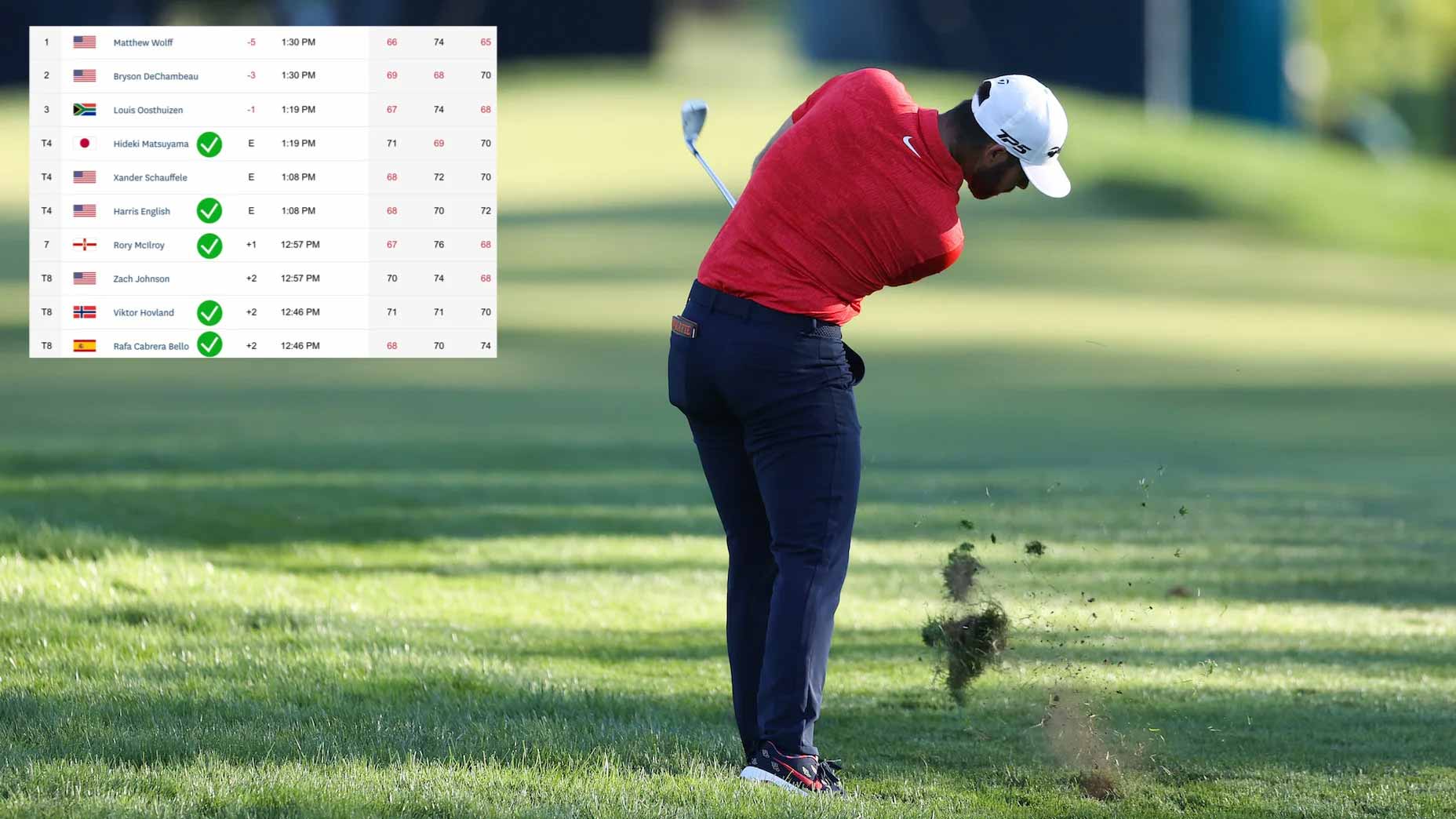All week we heard it. The course is tight. The rough is up. A good old fashion U.S. Open beckons. Better hit it in the fairways, boys!
Fast-forward to Sunday, when long hitters Matthew Wolff and Bryson DeChambeau sat first and second on the leaderboard hitting a combined five-of-28 fairways on Saturday. Naturally, that prompted a flurry of conversation among golf fans on social media trying to make sense of it all. And, to be clear, there were lots of smart insights floating around, like the kind you see below. Summarized in a nutshell: that hitting fairways when the fairways are as tight as Winged Foot’s doesn’t matter, because even the straightest hitters can’t hit enough of them to make it worthwhile.
There’s truth to the notion, for sure, but it’s more nuanced than that. Hitting fairways clearly does matter at this U.S. Open — it matters quite a lot, actually — it’s just not the only thing that matters. So I’m keen to dispel that mindset before it gathers (more) traction.
First off, let’s take a look at the top 10 on the leaderboard and see how many of them also rank in the top 10 of driving distance so far this week. Turns out, not many. Just two: Rory McIlroy, and Matt Wolff.
That’s compared to five players who rank inside the Top 10 of Driving Accuracy. Rory McIlroy is one of them, which means he’s not just one of the longest drivers in the field, he’s also one of the straightest.
When you include Greens in Regulation, too, you’ll find that eight of the players inside the top 10 either rank inside the top 10 in Fairways, Greens in Regulation, or both. Bryson DeChambeau is one of two players who ranks inside the top 10 in greens and not fairways hit — will get to him in a minute.
Looking at Strokes Gained helps illustrate this further. Matt Wolff isn’t in the top 10 of fairways or greens but ranks fourth and first in SG: Approach and SG: Around the Green, respectively. What’s going on there? In short, he’s driving it far but not particularly well, and is bailing himself out with a series of great approach shots and good up-and-downs. Louis Oosthuizen is sage and steady from tee-to-green this week, but leads the field in SG: Putting, which is how he makes up for it.
And then there’s Bryson, who ranks second in SG: Driving this week despite ranking 30th in accuracy. That matches, anecdotally, how we see Bryson’s game plan playing out: He’s not hitting it all that straight off the tee, but the longest driver is going ham on holes when he can be aggressive, capitalizing on those opportunities, and laying back when he can’t.
All of which helps us arrive at a slightly more messy — and honest — conclusion that Brandel Chamblee’s got spot on following the round. The 2020 U.S. Open at Winged Foot is a well-rounded test of golf, and there’s no one way to win, as the leaderboard shows. The contenders coming into Sunday all sport different styles of play, and they’re all executing game plans around their strengths.
If you’re going to hit lots of fairways and not much else, like Harris English and Rafa Cabrera Bello, you better make sure to hit the ball straight.
If you’re going to hit it far but not straight, like Wolff or DeChambeau, you better make sure to hit the ball really far, and get good wedging it close out of the rough — which is easier said than done.
And if you’re some kind of hybrid between the two, you better have multiple aspects of your game working for you. Rory is hitting his driver long and straight. Louis is hitting his irons solidly and putting well.
The beauty of golf is that there isn’t one and only one kind of playing. There never has been and there never will be. There may be different styles that become more prevalent in different eras, but the aim of the game remains the same: Executing the best version of your own gameplan.
